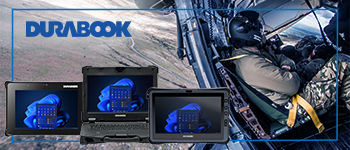Face facts
Tony Porter explains how Facial Recognition Technology can support post-COVID recovery
As many industries across the globe enter a period of recovery, technology remains central to helping us scale and evolve. Artificial Intelligence (AI) in particular has supported a number of enterprises, with 77 percent of organisations stating that the technology has played a role in business survival throughout the pandemic. What’s more, the deluge of data that has been collected and shared following the arrival of Coronavirus has established a foundation for the further acceleration of AI implementation not only for healthcare purposes, but also to enhance digital transformation initiatives within every industry.
However, AI and the technologies it powers – like Facial Recognition – have long been under the spotlight, with recent regulations put forward by the European Commission set to restrict ‘high-risk’ use cases such as financial applications, education admissions and employment, as well as ban dangerous applications altogether. Further regulation and a clearer framework for AI is a positive progression, as while this technology can and should be used as a tool to support economic recovery in the post-COVID landscape, it must only be done so with ethics and privacy at the very heart of all applications. This article aims to explore how AI-powered Facial Recognition Technology (FRT) can secure a better future for all if leveraged in the safest manner possible, looking specifically at use case examples of the travel industry, events and large venues.
The International Air Transport Association reported that COVID-19 has cost global airlines up to three years of growth, and the total number of air passengers in 2021 is predicted to be 52 percent lower than pre-pandemic levels. Undoubtedly, the travel industry is the one that has been hit the hardest and many travellers are hoping for a swift recovery to regain the freedom to book the holidays of their choice. However, the industry is not getting back to its feet easily. Heathrow recently called for the UK government to ‘get a grip’ on airport controls, after severe queues formed at immigration and customs. With mass travel set to re-commence, border control must find a way to overcome the complexity of additional paperwork and health and safety measures. For travellers, it is essential that they are able to trust their airlines and feel confident that their security is prioritised.
Implementing technology is key to re-opening the travel industry, especially for improving what is traditionally a friction-filled set of processes. Long queues and complex check-in or immigration procedures are not simply a product of the pandemic. In fact, the vast majority of tourists that used air travel before 2020 would be able to recount a less than optimised experience, with delays, lost luggage or even forgotten passports frequent occurrences. While FRT may not be the silver bullet to solve every single issue, it is certainly a great place to start. The UK Home Secretary, Priti Patel, recently announced plans to implement ‘contactless corridors’ in airports, that leverage FRT and biometric solutions to check passing passengers against a database of their details, submitted before travelling. These digital border proposals will significantly reduce queues at immigration by minimising the need for Border Force officials to be involved in security checks, instead allowing biometric passports and automated e-gates to take the brunt of the repetitive identification tasks. The central takeaway from these plans is that they will radically improve the airport experience, not only by streamlining procedures, but also by making sure that border officials can focus their efforts on those that pose a genuine threat.
Further simplifying and securing the airport process, biometrics could be set to replace all forms of identification in the next decade, with passports becoming a thing of the past. This would see our faces become our proof of identity, along with our boarding pass, luggage ticket and form of payment in duty free. The security benefits of integrating Facial Recognition into airport logistics are far-reaching, and for law enforcement and airport police in particular, FRT is a promising tool for saving valuable resources. Integrating this technology with body scanners allows an individual’s biometrics to be scanned and measured against a terrorist watchlist in mere seconds after a potential bomb alert – a much faster and more secure alternative to the manual processes currently in place. In the case of a known criminal, and where the perpetrator may be attempting to obscure their face, the most sophisticated biometric technology on the market will still be able to accurately identify and monitor the individual before they cause harm.
The eventual re-opening of large events, music venues and nightclubs, and the removal of “all legal limits on social contact” is an exciting prospect for a society that is, by now, very accustomed to lockdowns. However, there is some anxiety around what the lifting of restrictions might mean for health and safety, especially with large crowds gathering. Law enforcement must therefore brace for a very different summer from last year. With alcohol-fuelled violence and anti-social behaviour an inevitable consequence after over a year of venue closures, police teams have understandably sought further resources, yet are often unable to secure it. Recently, London’s request for 3,000 additional officers to help in the fight against crime was rejected.
Technology, therefore, again has an important role to play. FRT solutions, in particular, can ensure that security is at the forefront of all re-opening procedures, while also augmenting and improving the experience of the end-user. For venue managers concerned about the safety of their staff and customers, Facial Recognition can be installed at entry points in order to scan against a watchlist of those banned from the venue or those who are known to the police for disorderly behaviour. The important consideration here is to ensure that, for privacy purposes, watchlists are never impermissibly wide and are always very narrowly compiled – only including those individuals that pose a genuine threat to others within the venue. A common misconception around watchlists and FRT is that the data of each individual that walks past is analysed and stored, yet in reality the biometric data of those that do not feature on the lists will be ignored. In fact, with the most ethical and mature Facial Recognition solutions now on the market, the faces of anyone not on the watchlist will be blurred and the biometric signature rapidly deleted thus protecting their privacy and ensuring that this technology only focuses on those that it is programmed to identify.
The overall customer experience is undoubtedly improved if a venue is free from crime, yet FRT can also be implemented to streamline the security processes for all end-users. If venues offer the option to pre-register their customers with biometric solutions, long queues can be by-passed, and identification protocols simplified. Visitors will simply need to upload a (secured and protected) ‘selfie’ to the venue’s website, so their face can then become their entry ticket, proof of age and payment method. Without the need to carry a purse or wallet, the customer is already overcoming one key security risk. Ultimately, there will be some individuals that are concerned about privacy – despite the likelihood that they already utilise FRT to gain access to their mobile phones – and therefore this use of Facial Recognition should be offered on a solely opt-in basis. The traditional methods of entry and payment will still exist for those uncomfortable with FRT, but for every customer happy to take advantage of expedited entry and a more convenient, contactless and streamlined event experience, it is a promising opportunity to aid the seamless re-opening of venues across the UK.
After touching on privacy, it is important to highlight that biometric data is not only very personal, but is also typically unchangeable. It is therefore considered under GDPR as extremely sensitive, and it is illegal to process this type of data without consent or genuine and demonstrable public interest, eg, detecting and identifying a known criminal that poses a serious threat to society. While the GDPR does provide a loose framework for FRT usage, it was not specifically designed with AI and biometric technology in mind. Yet living in a post-COVID world and with AI and FRT important parts of pandemic recovery, data privacy is integral and those implementing Facial Recognition solutions need to understand how to do so in the safest manner.
While FRT can certainly be used lawfully, it is often difficult for vendors to navigate the various regulations not directly created for this technology. The law will always follow more slowly, but that does not mean we must be forced to live in a Luddite society in which innovation is held back. Therefore, the recent AI regulations proposed by the European Commission, in which it hopes to introduce a strong framework for Artificial Intelligence and Machine Learning, is a promising progression. In the future, we can also hope for the establishment of a singular, recognisable governing body that can act as the voice of authority and provide guidance for all those looking to develop, implement and operate Facial Recognition.
The UK, and eventually the rest of the world, is within touching distance of ‘normality’, but how this ‘new normal’ looks is completely dependent on how we decide to embrace the technologies integral to recovery. For the re-opening of travel, as well as events and venues, security can be bolstered and streamlined with the implementation of FRT. It is important that anyone introducing this technology into their organisation understands the importance of data privacy and works in-line not only with legal restrictions, but also moral codes of conduct. To support those still uncertain about the power of this technology, an opt-in option is essential. However, we owe it to society to demonstrate the force for good that Facial Recognition solutions can be when used appropriately – not just to protect us from harm, but to improve our lives as a whole.
Tony Porter is Chief Privacy Officer at Corsight AI









